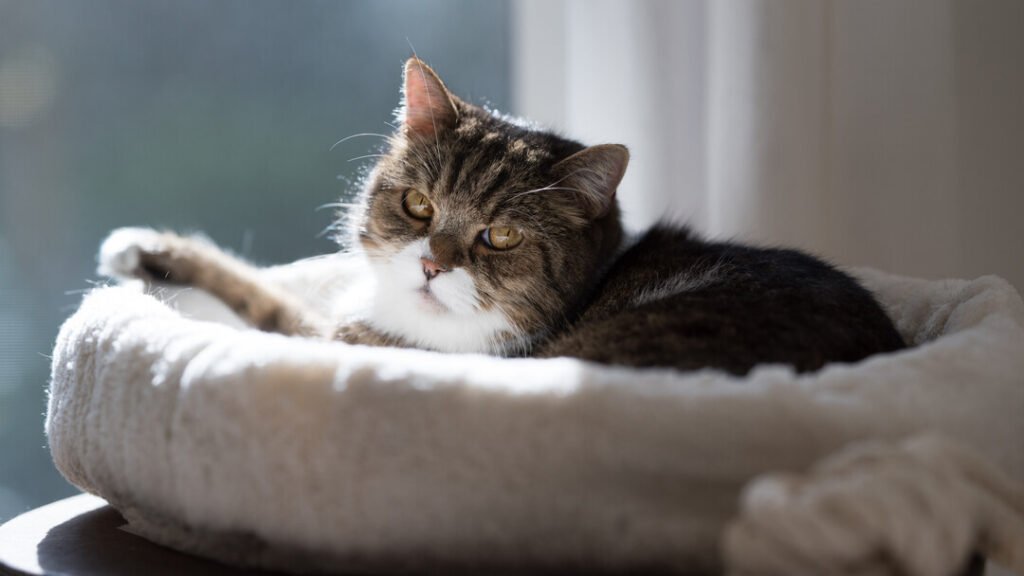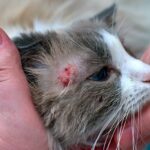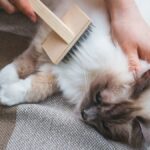Table of Contents
Caring for an aging cat requires special attention to their changing needs. As cats age, they may develop health issues and require different care than younger cats. This guide provides essential tips on how to care for an aging cat, ensuring your senior feline remains comfortable, healthy, and happy.

1. Regular Veterinary Check-Ups
Frequent vet visits are crucial for monitoring your cat’s health:
- Bi-Annual Check-Ups: Schedule vet visits at least twice a year to catch any health issues early.
- Screening Tests: Ensure your cat undergoes routine blood work and urine tests to monitor organ function.
- Vaccinations: Keep your cat’s vaccinations up-to-date to prevent infections.
2. Maintain a Healthy Diet
A balanced diet is essential for your aging cat’s health:
- Senior Cat Food: Choose a high-quality food formulated for senior cats to meet their nutritional needs.
- Proper Hydration: Ensure your cat drinks plenty of water to support kidney function and prevent dehydration.
- Healthy Weight: Monitor your cat’s weight and adjust their diet as needed to maintain a healthy weight.
3. Monitor for Health Issues
Be vigilant for signs of common health problems in senior cats:
- Arthritis: Look for signs of stiffness or difficulty moving, and consult your vet about treatment options.
- Kidney Disease: Monitor for increased thirst and urination, weight loss, and lethargy.
- Dental Problems: Watch for bad breath, drooling, or difficulty eating, which can indicate dental disease.
4. Provide a Comfortable Environment
Make your home senior-cat-friendly to ensure their comfort:
- Easy Access: Provide easy access to food, water, and litter boxes by placing them in convenient locations.
- Soft Bedding: Offer soft, supportive bedding to relieve pressure on aging joints.
- Quiet Spaces: Create quiet, stress-free areas where your cat can relax and feel safe.
5. Maintain Dental Hygiene
Good dental care is crucial for your cat’s overall health:
- Brush Teeth: Brush your cat’s teeth regularly with pet-specific toothpaste to prevent dental disease.
- Dental Check-Ups: Schedule regular dental check-ups and cleanings with your vet.
- Dental Treats: Provide dental treats or toys designed to help clean your cat’s teeth.
6. Regular Exercise and Mental Stimulation
Keep your cat active and engaged to maintain their physical and mental health:
- Interactive Play: Engage in gentle, interactive play sessions to keep your cat active.
- Enrichment Activities: Provide puzzle toys and scratching posts to stimulate your cat’s mind.
- Safe Outdoor Time: If possible, allow supervised outdoor time or create a safe, enclosed space for your cat to explore.
7. Grooming Assistance
Aging cats may need help with grooming to stay clean and comfortable:
- Regular Brushing: Brush your cat regularly to remove loose fur and prevent matting.
- Bathing: Bathe your cat occasionally using a gentle, pet-safe shampoo if they have trouble grooming themselves.
- Claw Trimming: Trim your cat’s claws regularly to prevent overgrowth and discomfort.
8. Monitor Behavioral Changes
Changes in behavior can indicate health issues or discomfort:
- Increased Vocalization: Excessive meowing can indicate pain or cognitive decline.
- Changes in Litter Box Habits: Monitor for changes in urination or defecation patterns, which can signal health problems.
- Isolation: If your cat starts hiding or avoiding interaction, consult your vet.
9. Administer Medications and Supplements
Follow your vet’s recommendations for medications and supplements to support your cat’s health:
- Pain Management: Administer any prescribed pain medications to manage arthritis or other conditions.
- Supplements: Consider supplements like glucosamine for joint health or omega-3 fatty acids for overall wellness.
- Consistency: Give medications and supplements consistently as directed by your vet.
10. Provide Emotional Support and Companionship
Emotional well-being is just as important as physical health for your aging cat:
- Quality Time: Spend quality time with your cat, offering affection and companionship.
- Gentle Handling: Handle your cat gently to avoid causing pain or stress.
- Positive Reinforcement: Use positive reinforcement to encourage desired behaviors and maintain a strong bond.
Conclusion on How to Care for an Aging Cat
Effectively caring for an aging cat involves regular veterinary check-ups, maintaining a healthy diet, monitoring for health issues, providing a comfortable environment, ensuring dental hygiene, encouraging exercise and mental stimulation, assisting with grooming, monitoring behavioral changes, administering medications and supplements, and providing emotional support. By following these tips, you can help your senior cat enjoy their golden years with comfort and joy. For more information on pet care, visit the ASPCA and AVMA.
FAQs on How to Care for an Aging Cat
How often should I take my aging cat to the vet?
It’s recommended to take your senior cat to the vet at least twice a year for check-ups to monitor their health and catch any issues early.
What type of food is best for an aging cat?
Senior cat food is formulated to meet the nutritional needs of older cats. Consult your vet for specific dietary recommendations based on your cat’s health and nutritional requirements.
How can I help my aging cat with arthritis?
Provide soft bedding, easy access to food and water, and consider supplements or medications as recommended by your vet to manage arthritis pain and improve mobility.
What are common health issues in senior cats?
Common health issues in senior cats include arthritis, kidney disease, dental problems, and hyperthyroidism. Regular vet check-ups can help detect and manage these conditions.
How can I keep my senior cat mentally stimulated?
Engage in gentle play, provide puzzle toys, and create opportunities for safe exploration to keep your senior cat mentally stimulated and prevent cognitive decline.
What should I do if my aging cat’s behavior changes?
Behavioral changes can indicate health issues or discomfort. Consult your vet to identify any underlying problems and determine the best course of action.











